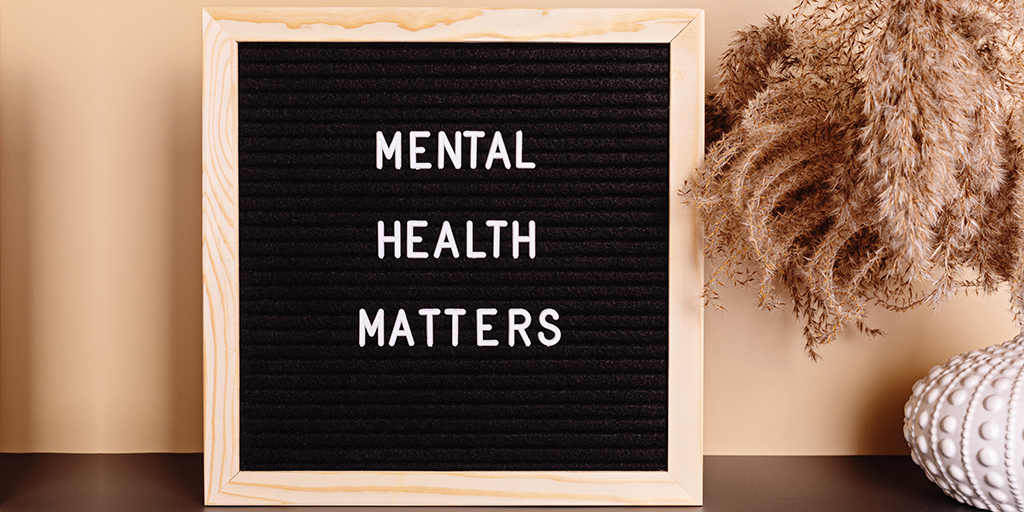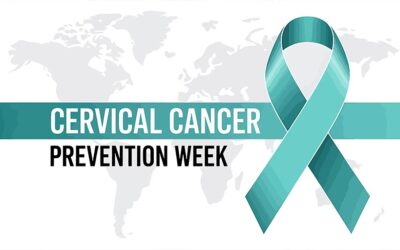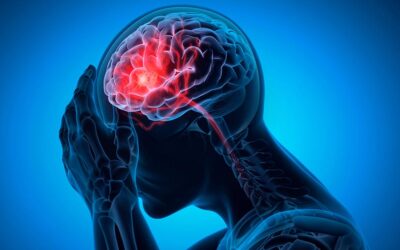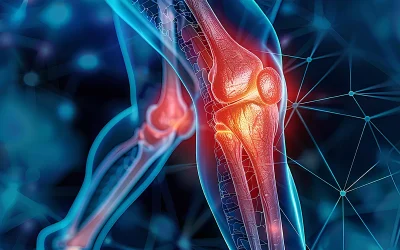The Role of Mental Wellness in Physical Health

Mental health is deeply interconnected with physical health, influencing how the body functions, heals, and adapts to daily challenges. While a healthy mind helps maintain energy, immunity, and motivation, poor mental wellness can cause fatigue, weaken immunity, and raise the risk of chronic illness. In today’s fast-paced life, mental health issues such as stress, anxiety, and emotional strain have become major contributors to physical problems like high blood pressure, poor sleep, and heart disease. Recognising this mind-body connection, therefore, has become all the more important to achieve complete well-being. In this article, we will explore how mental wellness affects physical health, the biological link between mind and body, and simple ways to nurture both for long-term health and well-being. Let’s start by understanding the fundamentals of mental wellness.
Table of Contents
ToggleWhat is Mental Wellness?
Mental wellness refers to a balanced state of emotional and psychological well-being where an individual can think clearly, manage stress, build positive relationships, and make healthy life choices. It involves more than just the absence of mental illness; it is the ongoing ability to handle challenges with resilience and maintain a sense of purpose and stability.
Good mental wellness supports focus, emotional control, and motivation, all of which contribute to better physical energy and lifestyle choices. Nurturing mental wellness through mindfulness, rest, and meaningful social connections helps create harmony between the mind and body, forming the foundation for overall health.
Difference Between Physical Health and Mental Health
Physical and mental health are equally important parts of overall well-being, yet they focus on different aspects of how the body and mind function.
- Physical Health: Refers to the condition of the body and how well it performs daily activities. It depends on factors such as regular exercise, balanced nutrition, proper sleep, and freedom from illness or injury.
- Mental Health: Involves emotional stability, thought patterns, and the ability to manage stress and relationships effectively. It influences decision-making, productivity, and how one perceives life’s challenges.
While physical health keeps the body active and strong, mental health drives motivation, discipline, and consistency. The two are deeply interconnected, because poor mental health can weaken the body, and poor physical health can impact mood and mental clarity.
Understanding the Mind-Body Connection
The mind and body constantly communicate with each other through complex biological systems. Thoughts, emotions, and stress levels can directly influence heart rate, hormone production, digestion, and immunity, showing how mental wellness affects physical function.
How Mental Health Influences Physical Health
When stress or anxiety becomes chronic, the body remains in a constant state of alert, releasing stress hormones such as cortisol and adrenaline. Over time, this can lead to inflammation, high blood pressure, and a weakened immune system. Positive mental states, on the other hand, support healthy habits, stable sleep cycles, and faster recovery from illness.
Biological Links: Hormones, Neurotransmitters, and the Nervous System
Mental wellness relies on chemical messengers such as serotonin, dopamine, and endorphins that regulate mood, energy, and pain perception. These same chemicals affect the cardiovascular, digestive, and nervous systems. For instance, low serotonin levels can contribute to both depression and digestive discomfort, highlighting how mental balance impacts physical health.
Effects of Mental Wellness on Physical Health
Mental wellness plays a vital role in how the body functions, heals, and maintains balance. A healthy mind supports strong immunity, efficient metabolism, and overall resilience, while poor mental health can increase the risk of chronic conditions and weaken the body’s natural defences.
Positive Effects of Good Mental Health
- Stronger Immune System: Reduced stress levels improve the body’s ability to fight infections.
- Better Heart Health: Emotional stability helps regulate blood pressure and heart rate.
- Improved Sleep: Balanced mental health promotes deeper, more restorative rest.
- Faster Recovery: Optimistic thinking and stress management accelerate healing after illness or surgery.
- Healthier Lifestyle Choices: Mentally well individuals are more likely to exercise, eat well, and avoid harmful habits.
Negative Effects of Poor Mental Health
- Chronic Diseases: Long-term stress or depression can contribute to hypertension, diabetes, and heart disease.
- Weakened Immunity: Continuous stress hormones suppress the immune response.
- Digestive Problems: Anxiety and tension can lead to indigestion, acidity, or irritable bowel symptoms.
- Sleep Disorders: Mental strain often results in insomnia or poor sleep quality.
- Fatigue and Pain Sensitivity: Mental burnout can cause low energy and increase perception of physical pain.
Mental wellness is therefore not separate from physical health – it is the foundation that allows the body to perform at its best.
Physical Health Conditions That May Affect Mental Health
Just as mental wellness impacts the body, physical health conditions can also influence mood, emotions, and overall mental well-being. Understanding which physical conditions commonly affect mental health helps in managing both effectively and improving overall quality of life. The most common examples include:
- Chronic Pain and Fatigue: Ongoing discomfort from conditions such as arthritis, back pain, or fibromyalgia can lead to anxiety, irritability, or depression.
- Hormonal Disorders: Thyroid problems, PCOS, and other hormonal changes can cause mood swings, low motivation, and emotional instability.
- Chronic Illnesses: Diseases like diabetes, hypertension, or heart disease often bring lifestyle restrictions and worry, affecting confidence and mental balance.
- Nutritional Deficiencies: Lack of essential vitamins such as B12 or D can impact energy levels and mood regulation.
Addressing both mind and body together through medical support, counselling, and healthy habits ensures complete, long-term recovery.
How to Take Care of Mental and Physical Health
Building good mental and physical health requires daily habits that nurture both emotional balance and bodily strength. The following practices can help create lasting harmony between the mind and body:
- Get Regular Exercise: Physical activity releases endorphins, which reduce stress and improve mood while keeping the heart and muscles healthy.
- Eat a Balanced Diet: A balanced diet including fruits, vegetables, whole grains, and protein-rich foods to support both brain and body function.
- Avoid Alcohol and Drugs: Substance use can disrupt mood regulation, weaken immunity, and increase stress levels.
- Get Enough Sleep: Quality rest restores mental clarity, balances hormones, and supports physical recovery.
- Practice Relaxation Techniques: Meditation, deep breathing, and yoga help calm the mind and lower stress hormones.
- Develop Positive Mental Practices: Journaling, gratitude exercises, and mindfulness strengthen emotional resilience.
- Seek Help When Needed: Talking to a counsellor, psychiatrist or therapist, or healthcare professional provides guidance and emotional support during difficult times.
- Early intervention to stress and low mood, or other behavioural changes noted by family members or care takers can prevent further progression to depression and life threatening situation such as suicide
Small, consistent steps towards holistic self-care help build a healthier, stronger, and more balanced life.
Why Choose Graphic Era Hospital for Holistic Health and Well-Being?
At Graphic Era Hospital, Dehradun, mental and physical health are treated as interconnected aspects of overall wellness. The hospital’s multidisciplinary approach combines modern medical care, psychological counselling, and lifestyle guidance to help patients achieve complete balance and long-term health. Here’s why people choose Graphic Era Hospital for holistic health and well-being:
Integrated Care Approach
Specialists in psychiatry, psychology, and general medicine work together to create personalised treatment plans that address both emotional and physical needs.
Expert Specialists and Counsellors
Experienced professionals provide evidence-based therapies, stress management programmes, and guidance for patients coping with anxiety, chronic illness, or lifestyle-related health concerns.
Focus on Preventive Health
The hospital promotes preventive care through wellness counselling, nutrition planning, and fitness programmes that support mental clarity and physical vitality.
At Graphic Era Hospital, every patient receives compassionate, whole-person care aimed at improving quality of life and lasting well-being.
Strengthening Physical Health Through Mental Wellness
True health extends beyond the absence of illness; it lies in creating balance between the body and mind. Good mental wellness inspires healthier habits, strengthens immunity, and speeds up recovery, while unmanaged stress and emotional strain can gradually weaken physical resilience.
At Graphic Era Hospital, Dehradun, care goes beyond treating symptoms. Specialists integrate physical medicine, psychological support, nutrition, and lifestyle management to deliver truly holistic treatment. This comprehensive approach helps patients regain balance, prevent future complications, and achieve lasting well-being.
To consult a mental health or wellness specialist, call 1800-889-7351.
Frequently Asked Questions
What are the signs that mental health is affecting physical health?
Persistent fatigue, frequent headaches, sleep disturbances, and digestive issues can all be signs that stress or emotional strain is impacting the body. Addressing both mind and body through medical and psychological support helps restore balance.
What is the difference between physical health and mental health?
Physical health refers to the condition of the body, including strength, fitness, and freedom from disease. Mental health involves emotional stability, thought patterns, and the ability to manage stress effectively. Both are interdependent and essential to overall well-being.
How does stress impact physical wellness?
Chronic stress triggers the release of cortisol, a hormone that increases blood pressure, weakens immunity, and disrupts sleep. Over time, this can contribute to heart disease, diabetes, and other chronic illnesses.
Why is holistic health important for overall well-being?
Holistic health focuses on treating the mind and body as a whole. It helps prevent illness, promotes emotional balance, and improves the body’s natural healing capacity.
How can improving mental wellness boost physical health?
Good mental health promotes healthy lifestyle choices, enhances sleep quality, strengthens immunity, and reduces the risk of chronic diseases.
What are some daily habits to strengthen both physical and mental health?
Regular exercise, nutritious eating, adequate rest, mindfulness, and seeking support when needed all help maintain overall wellness.
Where can I find the best mental wellness and holistic health specialists near me in Dehradun?
The multidisciplinary team at Graphic Era Hospital, Dehradun, offers expert care for both physical and mental wellness. To book an appointment, call 1800-889-7351.
By Specialities
- Bariatric Surgery
- Cancer Care
- Cardiology
- Dental
- Dermatology
- Diabetes & Endocrinology
- Endocrinology and Diabetes
- ENT (Ear Nose Throat)
- Eye Care
- Gastroenterology
- Haematology
- Health Care
- Health Tips
- Hematology
- Hepatology
- Internal Medicine
- Mental Health and Behavioural Sciences
- Metabolic
- Neonatology
- Nephrology
- Neurology
- Nutrition & Dietetics
- Obstetrics & Gynaecology
- Oncology
- Ophthalmology
- Orthopaedics
- Paediatric
- Physiotherapy & Rehabilitation
- Plastic and Reconstructive Surgery
- Psychology
- Pulmonology
- Rheumatology
- Spine
- Urology
Recent Posts
- Cervical Cancer Prevention Week 2026: A Global Call to Prioritise Cervical Health
- World Leprosy Day 2026: Why Awareness is Still Important Today
- What is a Stroke: Causes, Symptoms & Treatment
- Glaucoma Awareness Month 2026 : Raising Awareness to Prioritise Eye Health
- Understanding Menopause: Stages, Symptoms, and Management
Need expert medical advice?
Share your details and our healthcare specialists will reach out to assist you.
By proceeding, you acknowledge and agree to our Privacy Policy, Terms of Use, and Disclaimer.




















